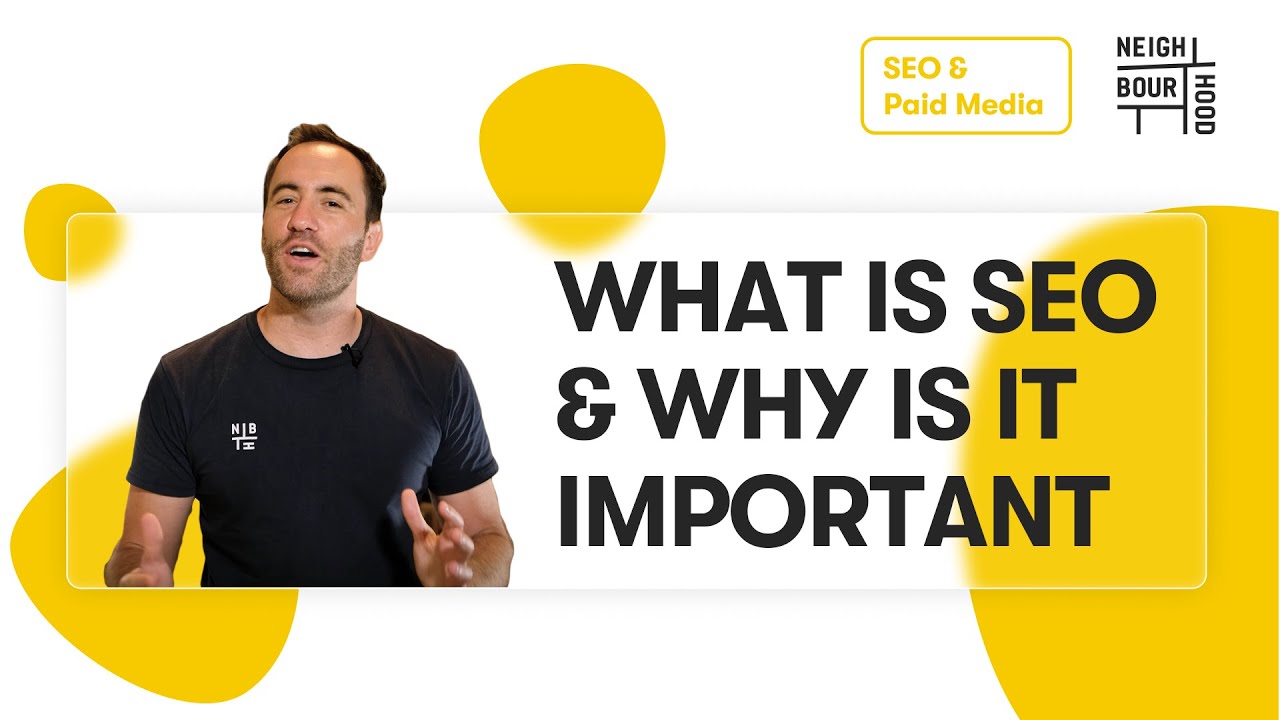Search engine optimization(SEO) is an essential aspect of digital marketing. It is the process of optimizing your website to rank higher in search engineresults pages (SERPs). The ultimate goal of SEOis to increase organic traffic to your website and generate leads or sales.
However, not all SEOstrategies are created equal. There is a significant difference between good and great SEO. Let's explore the differences between good vs great SEOand how they impact your website's performance.
Difference Between Good Vs. Great SEO
Good SEO is the foundation of a successful online business. It involves optimizing your website's structure, content, and keywords to rank higher in SERPs. Good SEO practices can help your website attract organic traffic, generate leads, and increase sales. However, while good SEO practices are essential, they are not enough to take your website to the next level.
Great SEO, on the other hand, is a comprehensive and continuous process that goes beyond the basics. It involves understanding your target audience, creating high-quality content, optimizing for user experience, and building high-quality backlinks. Great SEO requires a long-term strategy that prioritizes quality over quantity.
Good SEO Practices
Good SEO practices focus on the technical aspects of your website. They include optimizing your website's structure, content, and keywords. Here are some examples of good SEO practices:
Keyword Research
Keyword research is the process of identifying the most relevant keywords for your website. It involves analyzing search volumes, competition, and relevance to your website's niche. Keyword research helps you understand the language your target audience is using and optimize your website's content for the keywords they are searching for.
To conduct effective keyword research, you need to use a keyword research tool such as Google Keyword Planner, Ahrefs, or SEMrush. These tools help you identify high-volume keywords that are relevant to your website's niche.
They also provide valuable insights into the competition for each keyword, allowing you to focus on keywords that are more likely to generate traffic.
Once you have identified your target keywords, you need to integrate them into your website's content. This includes optimizing your title tags, meta descriptions, headings, and internal links. By integrating your target keywords into your website's content, you make it easier for search engines to understand your website's content and rank it accordingly.
On-Page Optimization
On-page optimization is the process of optimizing your website's content, structure, and HTML tags. It involves optimizing your title tags, meta descriptions, headings, and internal links. On-page optimization is crucial for good SEO as it helps search engines understand your website's content and rank it accordingly.
To optimize your website's content, you need to focus on creating high-quality, informative, and engaging content that resonates with your target audience. You also need to optimize your title tags and meta descriptions to accurately reflect your website's content and attract clicks.
Additionally, you should use appropriate headings to break up your content and improve readability.
Internal linking is another critical aspect of on-page optimization. Internal links help search engines understand the structure of your website and the relationship between different pages.
They also help visitors navigate your website and find the information they are looking for. By optimizing your website's structure and HTML tags, you make it easier for search engines to crawl your website and understand its content.
Site Structure
Site structure refers to the way your website's pages are organized and linked. A well-organized site structure makes it easier for search engines to crawl your website and understand its content. It also improves user experience by making it easier for visitors to navigate your website.
To optimize your website's site structure, you need to focus on creating a clear and logical hierarchyof pages. This includes organizing your pages into categories and subcategories and using appropriate headings to break up your content.
You should also use breadcrumbs to help visitors navigate your website and understand the relationship between different pages.
Site speed is another critical aspect of site structure. A slow-loading website can negatively impact your search engine rankings and user experience. To improve your website's site speed, you should use a content delivery network (CDN), compress your images, and minimize HTTP requests.
Mobile Optimization
Mobile optimization involves optimizing your website for mobile devices. With more than half of internet traffic coming from mobile devices, mobile optimization is essential for good SEO.
To optimize your website for mobile devices, you need to use responsive design, optimize page speed, and improve user experience on mobile devices.
Responsive design ensures that your website looks and functions correctly on any device, regardless of its screen size. Optimizing page speed involves minimizing the size of your files and reducing HTTP requests.
Improving user experience on mobile devices involves using clear and concise language, minimizing the number of clicks required to access content, and using mobile-friendly features such as click-to-call buttons and location-based services.
Great SEO Practices
Great SEO practices go beyond the technical aspects of your website. They focus on the user experience and the quality of your website's content. Great SEO practices are essential for long-term success in search engine rankings. Here are some examples of great SEO practices:
Understanding Your Target Audience
Understanding your target audience is essential for creating high-quality content that resonates with them and encourages them to engage with your website. It involves researching your audience's interests, pain points, and preferences.
To understand your target audience, you need to conduct market research, analyze your website's analytics data, and engage with your audience on social media. By understanding your target audience, you can create content that addresses their needs and interests and encourages them to engage with your website.
Creating High-Quality Content
Creating high-quality content is essential for great SEO. It involves creating content that is informative, engaging, and relevant to your target audience. High-quality content helps you attract backlinks, increase social shares, and improve user experience.
To create high-quality content, you need to focus on creating content that provides value to your target audience. This includes using data, research, and case studiesto support your content, using images and videos to break up your content, and optimizing your content for readability and engagement.
Optimizing For User Experience
Optimizing for user experience involves improving your website's usability, navigation, and design. It includes using clear and concise language, improving page speed, and providing easy navigation. Optimizing for user experience helps you improve engagement, reduce bounce rates, and increase conversions.
To optimize your website for user experience, you need to focus on creating a website that is easy to use, navigate, and understand. This includes using a clean and simple design, optimizing your website's speed, and using clear and concise language to communicate your message. You should also use clear calls-to-action (CTAs) to encourage visitors to take action on your website.
Building High-Quality Backlinks
Building high-quality backlinks is a crucial aspect of great SEO. Backlinks are links from other websites that point to your website. High-quality backlinks from authoritative websites can significantly improve your website's search engine rankings. Building high-quality backlinks requires creating valuable and engaging content that other websites will want to link to.
To build high-quality backlinks, you need to focus on creating content that is informative, engaging, and relevant to your target audience. You should also engage with other websites in your niche, participate in online communities, and use social media to promote your content. Additionally, you should use tools such as Ahrefs, SEMrush, or Moz to identify high-quality websites in your niche that you can reach out to for backlinks.
The Importance Of Great SEO

What is SEO? | Why do we need SEO? | Importance of SEO
Good SEO practices are essential for getting your website to rank in search engine results pages. However, great SEO practices are essential for taking your website to the next level.
Great SEO practices help you stand out from your competitors, attract high-quality traffic, and increase your website's authority. Here are some reasons why great SEO is essential for your website's success:
1. Increased Authority
Great SEO practices help you establish your website as an authoritative source of information in your niche. By creating high-quality content and building high-quality backlinks, you can increase your website's authority and improve your search engine rankings.
2. Improved User Experience
Great SEO practices prioritize user experience. By optimizing your website for usability, navigation, and design, you can improve user engagement, reduce bounce rates, and increase conversions.
3. Higher Quality Traffic
Great SEO practices attract high-quality traffic to your website. By understanding your target audience and creating high-quality content, you can attract visitors who are interested in your products or services.
4. Long-Term Success
Great SEO practices are essential for long-term success in search engine rankings. By creating valuable and engaging content, building high-quality backlinks, and optimizing for user experience, you can establish your website as a trusted source of information in your niche.
Good Vs Great SEO - Which Is Right For Your Website?
Good SEO practices are essential for any website. They help you optimize your website's structure, content, and keywords to rank higher in search engine results pages.
However, if you want to take your website to the next level, you need to focus on great SEO practices. Great SEO practices prioritize quality over quantity and help you establish your website as an authoritative source of information in your niche.
When deciding between good and great SEO practices, it's important to consider your website's goals, budget, and timeline. Good SEO practices are a good starting point for any website and can help you improve your search engine rankings quickly.
Great SEO practices require a long-term strategy and investment but can lead to long-term success and competitive advantage.

SEO in 2023: My NEW Strategy for Google Traffic!
People Also Ask
What Is The Difference Between On-page SEO And Off-page SEO?
On-page SEO refers to the optimization of a website's content and structure to improve its rankings in search engine results pages. This includes optimizing title tags, meta descriptions, headings, internal links, and website structure. Off-page SEO refers to activities that take place outside of your website, such as building high-quality backlinks, social media marketing, and influencer outreach.
What Is The Impact Of Website Speed On SEO?
Website speed is a critical factor in SEO as it affects user experience and search engine rankings. Slow-loading websites tend to have higher bounce rates and lower user engagement, which negatively affects their search engine rankings. Fast-loading websites, on the other hand, tend to have lower bounce rates, higher user engagement, and better search engine rankings.
How Does The Quality Of Content Affect SEO Rankings?
The quality of content is a crucial factor in SEO rankings as it affects user experience, engagement, and backlinks. High-quality content is engaging, informative, and relevant to your target audience. It helps to attract backlinks from authoritative websites, which improves your website's search engine rankings.
Conclusion
Search engine optimization (SEO) is a crucial aspect of digital marketing. Good SEO practices involve optimizing your website's structure, content, and keywords to rank higher in search engine results pages.
Great SEO practices go beyond the basics and focus on creating high-quality content, optimizing for user experience, and building high-quality backlinks. Good SEO practices are essential for any website, but great SEO practices are essential for long-term success and competitive advantage.
By understanding the differences between good vs great SEO practices, you can make informed decisions about how tooptimize your website for search engine rankings.
